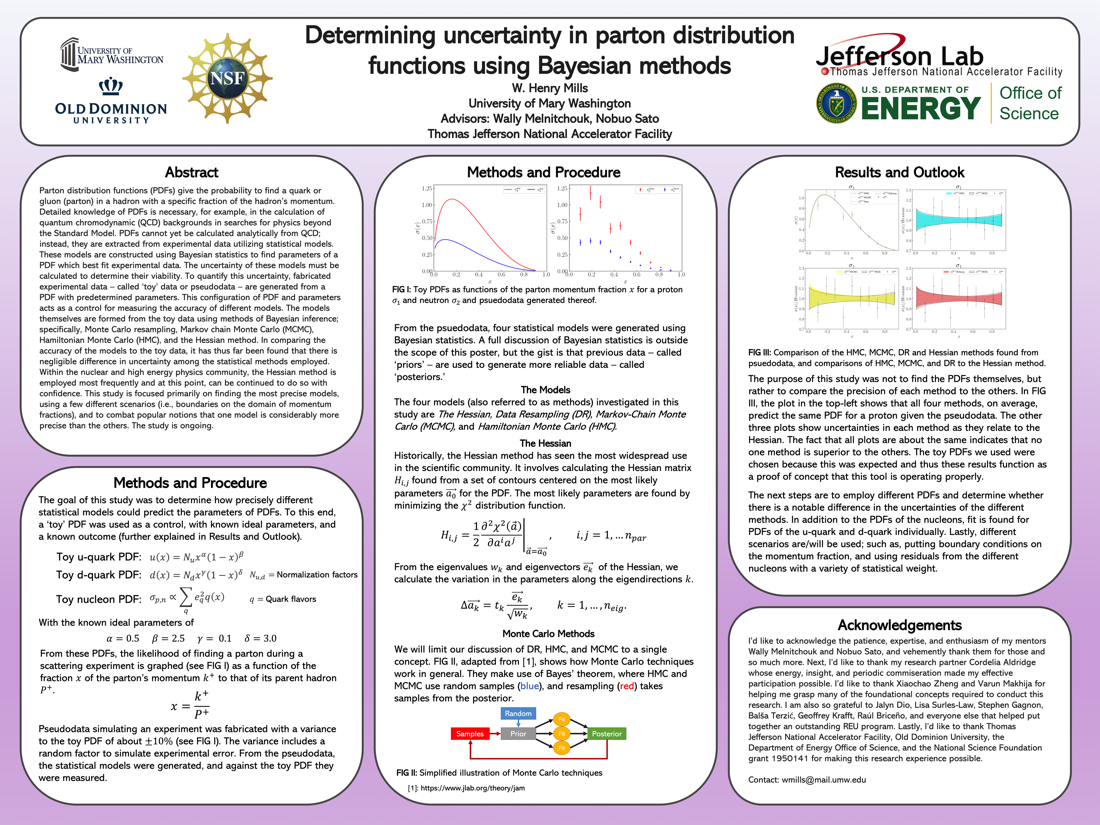Undergraduate Research at Jefferson Lab
Determining Uncertainty in Parton Distribution Functions using Bayesian Methods
Student: Henry Mills
School: University of Mary Washington
Mentored By: Dr. Wally Melnitchouk
Parton distribution functions (PDFs) give the probability to find a quark or gluon (parton) in a hadron with a specific fraction of the hadron's momentum. Detailed knowledge of PDFs is necessary, for example, in the calculation of quantum chromodynamic (QCD) backgrounds in searches for physics beyond the Standard Model. PDFs cannot yet be calculated analytically from QCD; instead, they are extracted from experimental data utilizing statistical models. These models are constructed using Bayesian statistics to find parameters of a PDF which best fit experimental data. The uncertainty of these models must be calculated to determine their viability. To quantify this uncertainty, fabricated experimental data - called 'toy' data - are generated from a known PDF with predetermined parameters. This configuration of PDF and parameters acts as a control for measuring the accuracy of different models. The models themselves are formed from the toy data using methods of Bayesian inference; specifically, Monte Carlo resampling, Markov chain Monte Carlo (MCMC), Hamiltonian Monte Carlo (HMC), and the Hessian method. In comparing the accuracy of the models to the toy data, it has thus far been found that there is negligible difference in uncertainty among the statistical methods employed. Within the nuclear and high energy physics community, the Hessian method is employed most frequently and at this point, can be continued to do so with confidence. This study is focused primarily on finding the most precise models, using a few different scenarios (i.e., boundaries on the domain of momentum fractions), and to combat popular notions that one model is considerably more precise than the others. The study is ongoing.
[Watch the presentation on YouTube]

Citation and linking information
For questions about this page, please contact Education Web Administrator.
